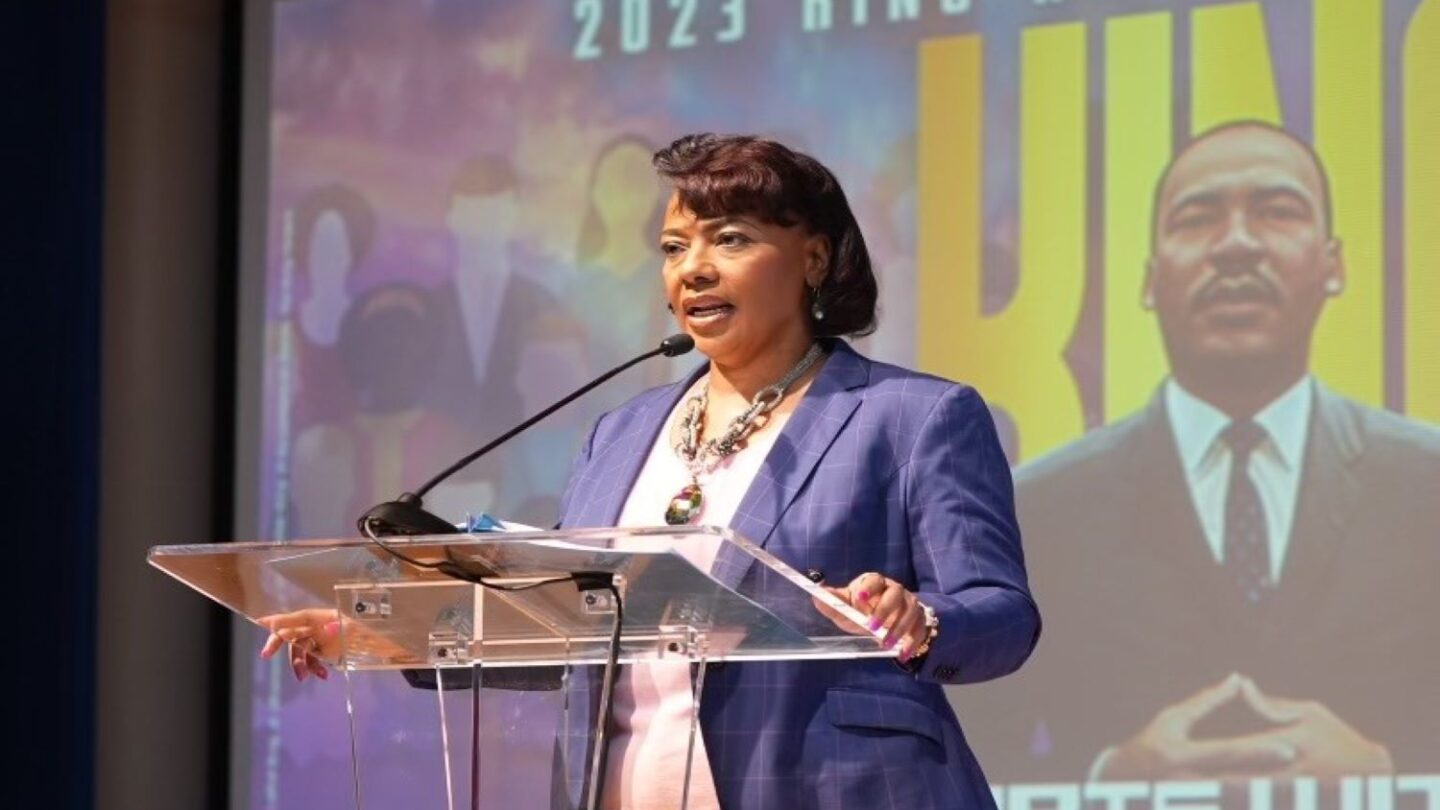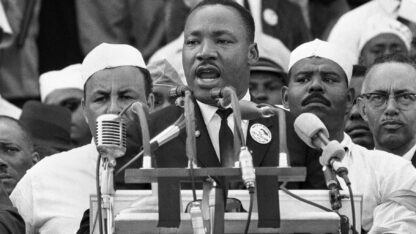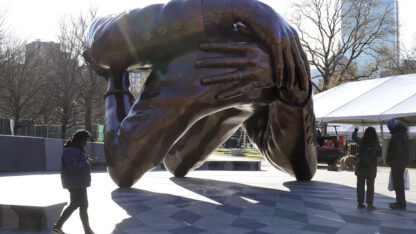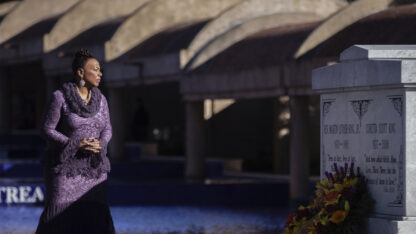King Center launches new workplace training to advocate the teachings of Civil Rights legend

After forty years of celebrating Dr. Martin Luther King Jr. Day as a national holiday, the renowned Civil Rights leader’s dream for a better tomorrow still continues to captivate the world that he left over 50 years before.
In a political and social society enthralled with a growing awareness of inclusivity and diversity, the Martin Luther King, Jr. Center for Nonviolent Social Change has launched a way to work the teachings and principles of Dr. King into the offices and workspaces of companies nationwide.
Launched the week of Jan. 9, 2023, Nonviolence365 (NV365) Online Workplace Edition is a series of practical-based online modules incorporating roughly three and a half hours of business scenarios and virtual trainings with the nonviolent teachings of Dr. King.
“The Kingian philosophy and methodology of nonviolence has the power to help businesses achieve their goals and foster lasting inclusivity and belonging in the workplace,” said Dr. Bernice King, daughter of Dr. King and CEO of the King Center, in a recent press release. “For decades, The King Center has advanced the teachings of nonviolence, but today, our eyes are on the enterprise, as the workplace is woven into the fabric of our beloved community and has the power to create more equitable cultures at scale.”
The program immerses participants in interactive activities that tackle the modern-day realities of workplace challenges and conflicts. In the hands of world-class instructors and veteran Civil Rights leaders, users are assisted in learning approaches for nonviolent resolutions and developing critical thinking skills necessary to harbor a high-functioning and safe working environment.
The training is designed to also help build upon creating open discussions and communication for withstanding effective changes in fostering diversity, equality, inclusion and belonging, according to Dr. Kelisha Graves, chief research, education, and programs officer for The Martin Luther King Jr. Center for Nonviolent Social Change.
“This program goes well with businesses that would like to elevate the culture of their workplace…and would like to create optimal interpersonal relationships,” said Graves. “We have a team of world-class trainers and instructors who have dedicated their lives to nonviolence.. folks like Ambassador Andrew Young, who was a lieutenant of Dr. King, trainers who have studied at the feet of Mrs. Coretta Scott King, leaders who have lived and breathed these nonviolent philosophies during the Civil Rights Movement.”
One of the most essential elements of the program, in Graves’ opinion, is the step-by-step teachings of Dr. King’s six principles of nonviolence.
- Principle one: Nonviolence is a way of life for courageous people. It is active nonviolent resistance to evil. It is aggressive spiritually, mentally and emotionally.
- Principle two: Nonviolence seeks to win friendship and understanding. The result of nonviolence is redemption and reconciliation. The purpose of nonviolence is the creation of the Beloved Community.
- Principle three: Nonviolence seeks to defeat injustice, not people. Nonviolence recognizes that evildoers are also victims and are not evil people. The nonviolent resister seeks to defeat evil, not people.
- Principle four: Nonviolence holds that suffering can educate and transform. Nonviolence accepts suffering without retaliation. Unearned suffering is redemptive and has tremendous educational and transforming possibilities.
- Principle five: Nonviolence chooses love instead of hate. Nonviolence resists violence of the spirit as well as the body. Nonviolent love is spontaneous, unmotivated, unselfish and creative.
- Principle six: Nonviolence believes that the universe is on the side of justice. The nonviolent resister has deep faith that justice will eventually win. Nonviolence believes that God is a God of justice.
“We live in a time that’s become increasingly polarized and conditioned for people to react…information gathering is absolutely paramount (in modern day),” she said. “Also, one of the examples that we can glean from Dr. King and Mrs. Coretta Scott King is the emphasis around courage and the commitment for social change is first necessitated by courage.”
Graves, who began her association with The King Center after writing a letter to the late Yolanda King at the age of 15 in 2006, considers Nonviolence 365 as the epitome for other planned initiatives the center has in store for the upcoming year.
While there is no question as to the limitless opportunities the King Center has ahead of them, Graves seems to have a well-thought-out answer as to why Dr. King’s activism and legacy continue to resonate with new generations.
“Dr. King’s legacy is about connecting people, and I think that’s what resonates with people…the values that we can glean from his life are empathy, respect, love, intrapersonal connection. The sense that all of humankind is interrelated and interdependent,” she said. “Nonviolence is not just a philosophy; it’s a way of life.”








